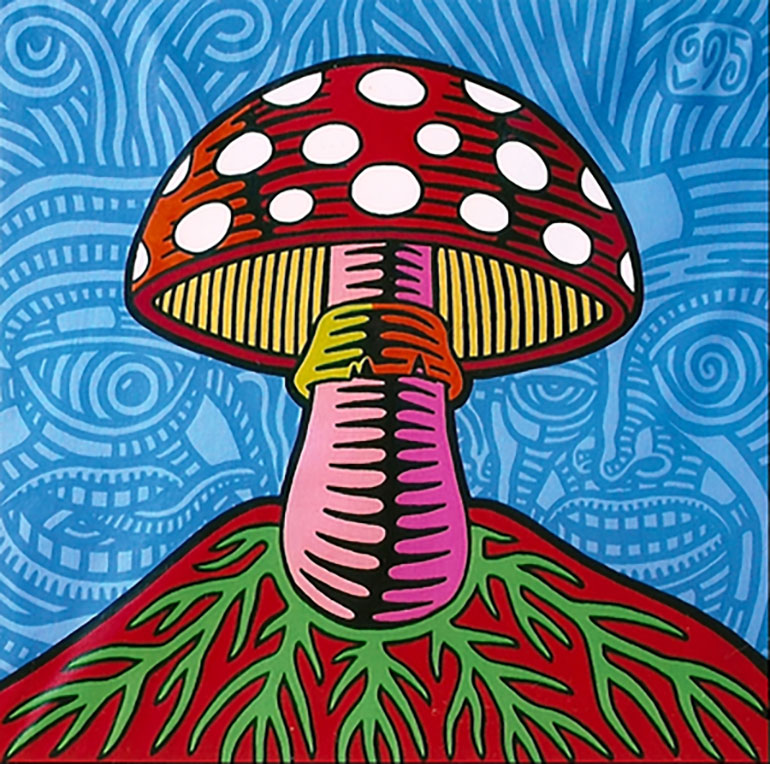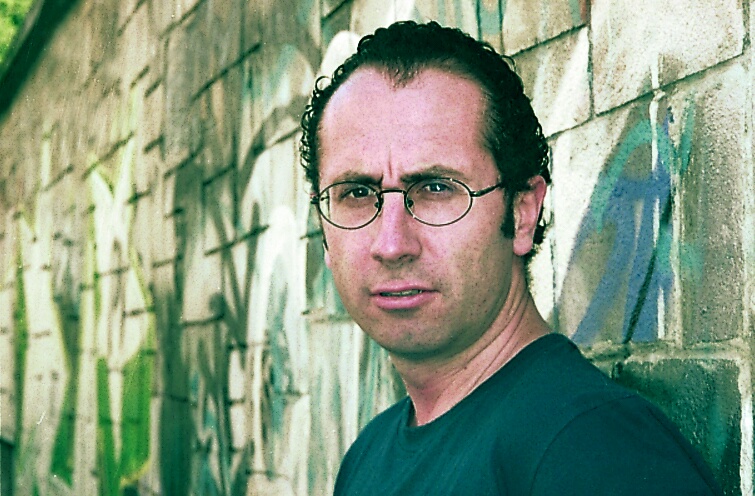
“Ever since I was born, I have been immersed in digitalised images, synthetic sounds and artefacts. Artificial, distorted, filtered – this is the nature of man today.” – Fausto Romitelli
Thus summarizes the artistic legacy of Fausto Romitelli (1963-2004), a composer of Italian origin who had his career cut short by a long battle with cancer. Romitelli’s extreme approach to composition involves clashing together discrepant elements of old-style musical rhetoric and synthetic distorted materials, often involving the use of electric guitar and MIDI keyboards. Romitelli’s most well-known work, entitled Professor Bad Trip, is an epic LSD-fueled cycle of chamber music, evoking a dizzying array of artists and writers including Francis Bacon, Allen Ginsberg, Henri Michaux, and that master of LSD experimentation, Timothy Leary.
Marketed by Ensemble Offspring as “what classical music on drugs would sound like”, the cycle is organized in a series of three “lessons”, and navigates hazy impressionisms of post-war spectralism, 1970’s Miles Davis and guitar-driven psychedelia. The music is highly reflective of Romitelli’s own life and studies, which brought him both under the shadow of Boulez at IRCAM’s electronic music studio, and later into Italy’s psychedelic rock scene.
Until very recently, Romitelli’s music was practically unknown in North America, but this situation will be rectified in Toronto as the Music Gallery and Contact Contemporary Music gear up to perform the difficult cycle on April 18th.
Rob MacDonald is Contact Contemporary Music’s guitarist and is spearheading the project, though MacDonalds admits to originally being taken aback by the extremities of Romitelli’s music:
“I think I was a little freaked out – maybe startled a bit. Then curiosity led to a Youtube binge and I actually ran out and bought the Ictus Ensemble CD (hadn’t done that in a long time). Mostly, it was a whole new sound to me. I latched onto the ‘obsessive’ qualities in his music – how he states a simple musical idea, then revisits it constantly until it becomes lost.
It struck me as a sort of refreshing, unedited, rougher minimalism in that sense.

Above all, Romitelli’s music speaks about art in the Age of Mechanical Reproduction, a time when distortion and synthesis are no longer terrifying prospects but normalized, and even celebrated procedures. Romitell’s music, MacDonald says, chooses to not only accept the situation but to revel in its glories.
“I sorta think about it this way: we now have an entire generation of kids who think an un-auto-tuned singing voice sounds foreign and wrong,” MacDonald says. “The only recorded sounds they really know are digital, controlled in every fashion. It’s how recorded ‘sounds’ exists in our time, whether we like it or not. Romitelli gets this and accepts it. In Bad Trip, he kinda celebrates it, embraces it, I think. Ultimately those sounds overtake everything else.“
Rounding out the concert program is a set by the Michael Eckert Large Earth Ensemble, or M.E.L.E.E. for short, who will pull tunes inspired by jazz, world music and classic rock into a more contemporary framework.
Professor Bad Trip will be performed by Contact Contemporary Music at the Music Gallery, 8 p.m., April 18th, 2015. Details here.
- PREVIEW | U of T Faculty of Music Brings Salvatore Sciarrino to Toronto - January 27, 2017
- PREVIEW | The Music Gallery Gears Up For The Viking Of 6th Avenue - November 25, 2016
- SCRUTINY | Esprit Orchestra Salutes The Legacy Of R. Murray Schafer - October 28, 2016



